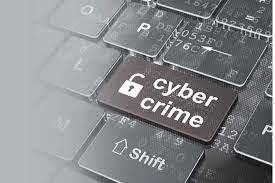
INDIANA – Cybercrime is a big problem for small businesses and only worsens. 64% of global organizations have experienced at least one cyber-attack, and for 2024, the cost of cybercrimes is forecasted to reach $8 trillion, with small businesses being a popular target.

Another study revealed that 88% of small business owners felt their businesses were vulnerable to a cyberattack, stating they didn’t believe they had enough resources to protect themselves adequately.
The good news? You can take measures to protect your small business, and you should do so promptly.
Cybersecurity threats are on the rise. According to recent research from Accenture, 43% of cyber-attacks are targeted at small businesses, with only 14% being able to defend themselves against attacks.

These numbers reflect the broader trend of an increasingly unsafe world. As technology advances and becomes more interconnected, cyberattacks are becoming more difficult to defend against, resulting in more and more small businesses becoming victims of cybercrime.
Some of the trending cybersecurity threats that experts say to be aware of in 2024 include:
- Business email attacks
- Malware and ransomware threats
- Crypto scams and “pig butchering”
- Cybercrime cash-out processes with cryptocurrencies
- Crime as-a-service
The only way to protect your small business from cybercrime is to take preventative action. Cybersecurity is no longer an option – it’s a necessity. It’s time to gather your team and develop a comprehensive cybersecurity strategy for your small business.

Cyberattacks are a constant threat to businesses of all sizes. Small businesses are particularly susceptible to data breaches and cyberattacks because they are not always equipped with the proper tools and resources to combat these threats. However, you can still take some valuable steps to protect your business. Here are five cybersecurity practices every small business should implement right away:
1. Train all employees in cybersecurity best practices
One of small businesses’ most critical security measures is training all employees on the best cybersecurity practices. This ensures that your employees understand the risks associated with accessing company data and systems and provides them with the knowledge and tools necessary to protect themselves from cybercrime.
To effectively educate your employees, provide them with clear cybersecurity policies that outline the risks, the defenses in place, and the steps they can take to protect themselves. You can also offer formal cybersecurity training programs to ensure they are current on the latest threats and solutions.
2. Implement role-based access control (RBAC)
One of the most effective ways to protect your data and systems from cyberattacks is implementing role-based access control (RBAC). RBAC allows you to assign specific permissions to different employees based on their role in the company, controlling who has access to what data.
For instance, you can grant certain employees access to the company’s email system and grant others access to the company’s digital sales platform. This ensures that employees can only access the systems and data required to do their job. This also prevents employees from accessing sensitive data they don’t need, reducing their risk of becoming a victim of data theft.
3. Initiate automated remote backup and data recovery
Protecting data is one of the most crucial cybersecurity practices for small businesses. One of the best ways to protect your data from cyberattacks is by initiating automated remote backup and data recovery, which allows you to store an extra copy of your data offsite in a secure location.
An automated remote backup and data recovery solution not only safeguards your data from cyberattacks but also allows you to restore your data in the event of a data breach.
4. Multi-factor authentication (MFA)
MFA requires users to provide additional information beyond their username and password to prove their identity when accessing company data and systems. This additional information may include a code texted to your mobile device, a thumbprint, etc.
MFA makes it significantly more difficult for cybercriminals to access your data and systems, providing an added layer of security if a cybercriminal circumvents your password. While MFA used to stop at two-factor authentication, it typically involves several steps to ensure the person trying to gain access is who they claim to be.
5. Secure your Wi-Fi networks
Finally, one of the most crucial cybersecurity practices for small businesses is properly securing your Wi-Fi networks to ensure your employees connect to a safe network when they access the internet through your business.
You can secure your Wi-Fi networks by using a VPN to encrypt internet traffic that passes through, using a firewall to block cybercriminals, and using a host intrusion prevention system (HIPS) to detect and block cyberattacks.

Prioritize your cybersecurity with help from the BBB: No matter how large or small your business is, cybersecurity needs to be a priority. The BBB recognizes that small businesses face unique cybersecurity challenges, and we are here to help.
To learn more ways to improve your business practices, go to bbb.org and visit the BBB Small Business Resources page. You can also visit BBB.org/get-accredited to learn how to stand out as a BBB-accredited business.



